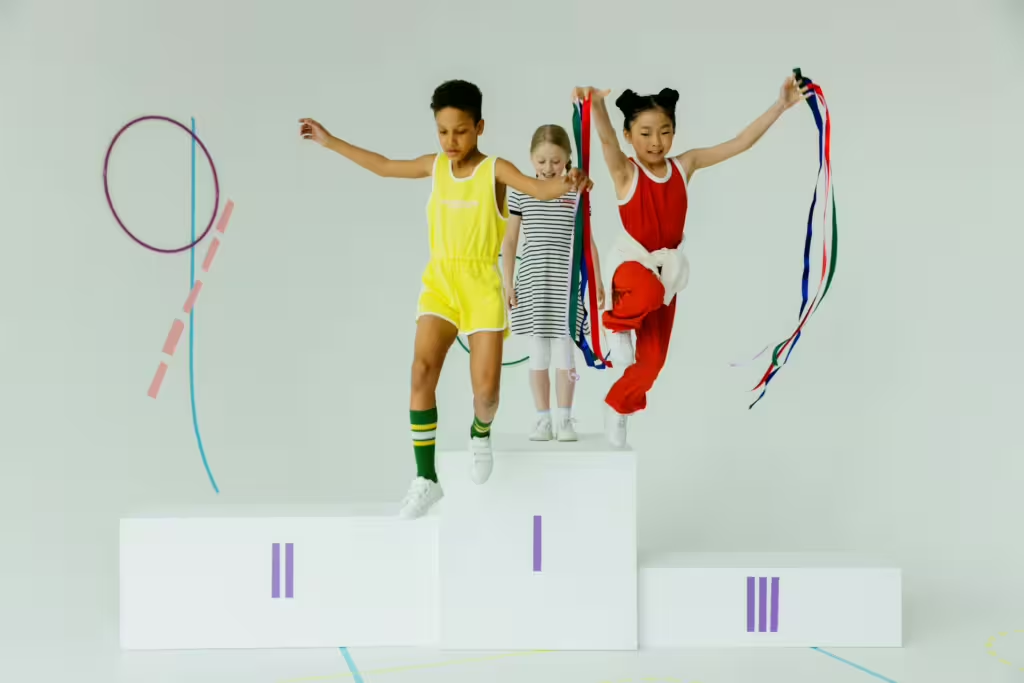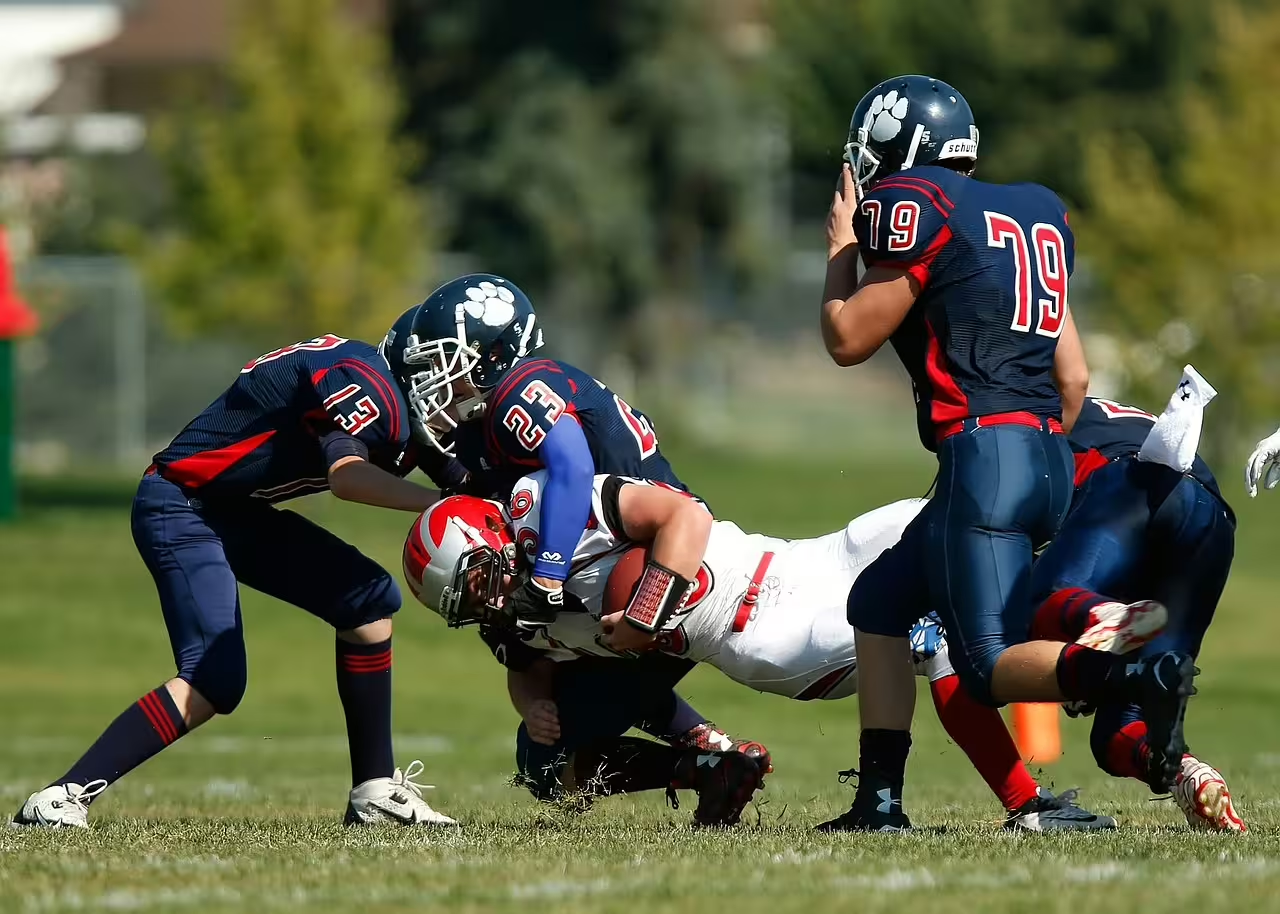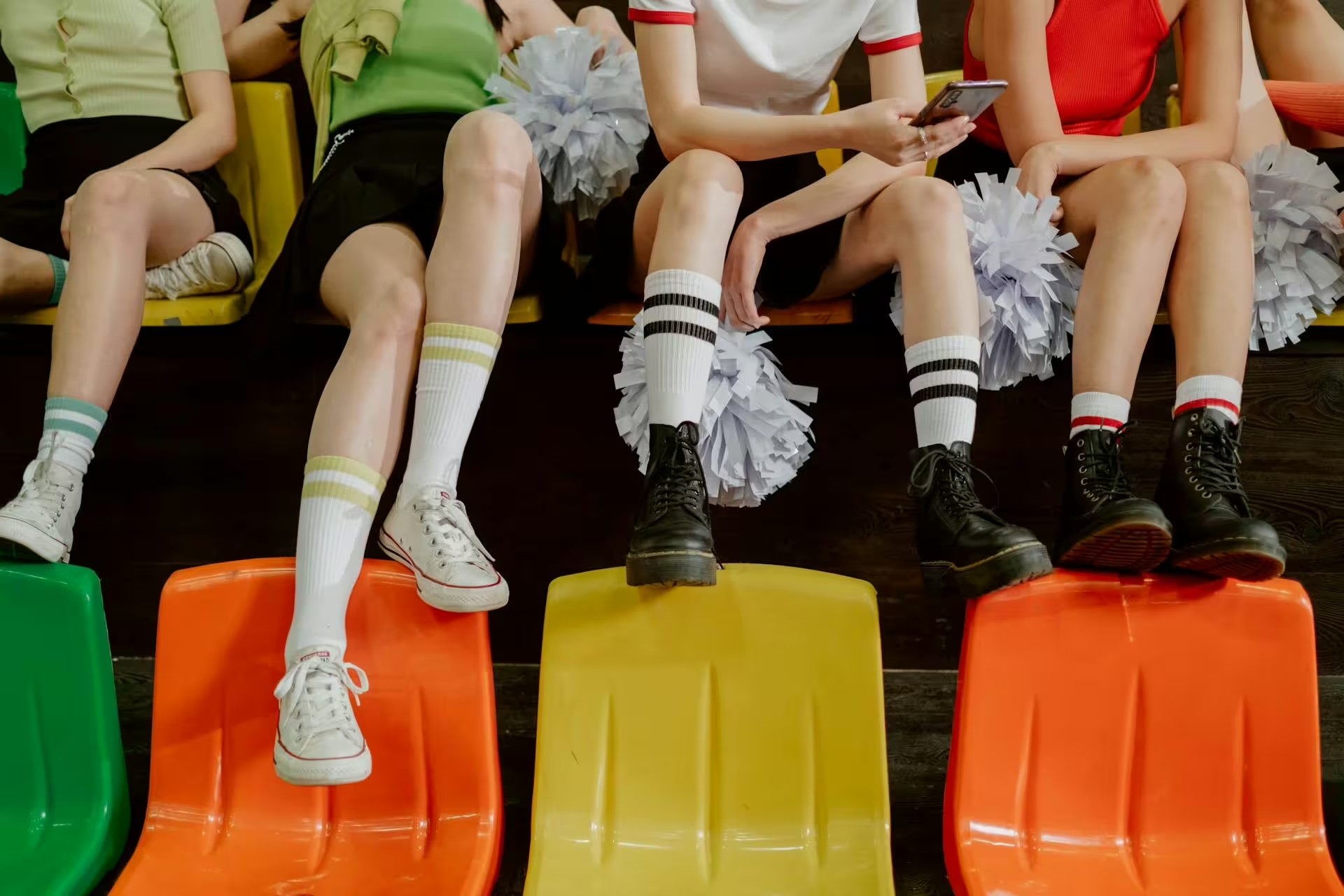Have you ever watched your favorite athlete make an amazing play and thought, Wow, they must be so confident!? This is one of the thoughts that drive young athletes. It is something that many of them wish they had; that seemingly impossible amount of confidence that pro-athletes seem to be infused with. To many struggling young athletes, or children just getting into sports, that confidence seems almost unachievable, just like success. The thing is, these thoughts are just an obfuscation.
While it is true that most champions believe quite strongly in themselves, even when the pressure is high and the odds seem impossible, that does not mean they don’t waver in that confidence. Like the rest of us, they were not born with that impossible confidence. They learned how to believe in themselves through practice, patience, and perseverance—just as your children will one day as well.
In this article, we will explore how your child can develop that impressive self-belief and self-confidence just like the pros. Whether they are scoring goals, running races, or playing for fun, learning to trust in themselves is one of the best skills your child can learn—not just in sports, but in life, in general.
What Does It Mean to Believe in Yourself?
Believing in ourselves means having confidence in our own abilities and trusting that we can achieve our goals. It also means not giving up when things get tough, which is something that a child might have trouble learning. If you’re trying to speak to a child about attaining this confidence, frame it like this: Confidence is like having a superhero inside you who says, “You’ve got this!” even when you’re nervous or unsure.
Now, having self-belief doesn’t mean that your kid is going to win every time or be perfect. Rather, it means understanding that mistakes are part of learning, and success comes from effort and determination. This is where strategy comes into play and why the guidance we provide in the coming sections is so important.
Why Is Self-Belief Important in Sports?
We know that sports are full of challenges and so do any readers who have ever started playing sports at a young age. In sports, you might face tough opponents, miss a game-winning shot, or struggle to learn a new skill. In these moments, having belief in your own abilities can feel like having an extra teammate cheering you on. This too is something we must impart to our children.
Here’s why self-belief is so important for young athletes:
They Will Take More Chances Confidence gives children the courage to try new things, like attempting a tricky move or volunteering to take a penalty kick. Even if they end up failing, they can still learn and improve faster than if they had never tried at all.
They Will Bounce Back From Mistakes Kids need to learn the hard lesson that everyone messes up sometimes, even the best athletes in the world. Believing in themselves can help them to stay positive and keep going, instead of letting mistakes hold them back.
They Will Play Better When a kid believes in themself, they become far less likely to be nervous or distracted by their own self-doubt. This allows young athletes to focus and perform their best during games and even when they are just practicing; which can be equally important for improving necessary skills.
They Will Inspire Others Always remember that confidence, like doubt, is contagious! When a person believes in themself, others might feel the same. For example, if your kid is exuding confidence, their teammates are likely to feel similarly inspired to do the same. If they are showing oodles of doubt, however, their teammates could take on that worry too.
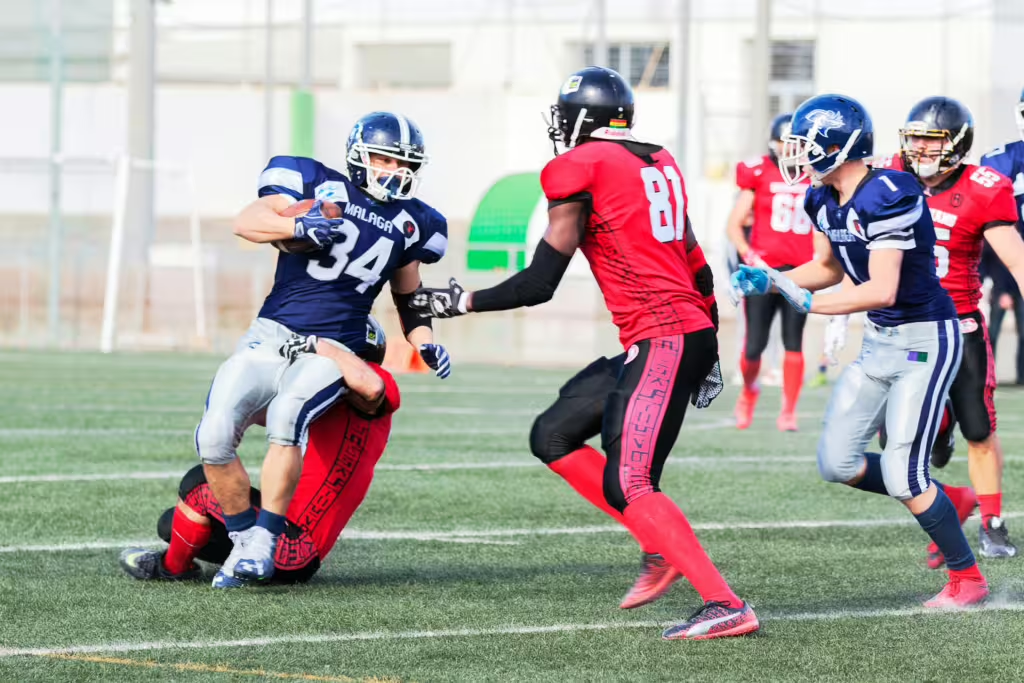
How Champions Build Self-Belief
Even the most successful athletes had to start somewhere. Here’s how those champions of the field, pitch, and court learned to believe in themselves—and how your child can too:
Set Goals and Work Toward Them
Champions don’t wake up one day and become great. To become a champion, one must set clear, achievable goals and work toward them step by step. They must also stick to those goals, even when the going gets tough.
- Start small: If you want your child to improve their basketball shooting, for example, aim to have them make five extra shots every day they that they practice; which should be every day, incidentally.
- Celebrate progress: Every little improvement matters. Remind your child to be proud of each step forward!
- Dream big: Long-term goals, like playing on a high school team or becoming a pro, help to keep kids driven and motivated.
Practice, Practice, Practice
We touched on it earlier, but consistent practice is key. Remember that confidence comes from preparation. The more your kid practices, the more they will develop and trust their hard-won skills.
- Make time to improve: Even 15 minutes a day can make a difference to a kid who is learning sports.
- Focus on your weaknesses: Turning weak areas into strengths boosts a child’s confidence and reframes negative thinking.
- Stay consistent: Regular practice builds habits and makes tough skills feel easier for struggling athletes.
Visualize Success
Many athletes imagine themselves succeeding before they compete and this method can work just as well for budding athletes as it can for the pros. This technique is called visualization and it is used to help athletes feel prepared and confident about their future performance.
- Close your eyes: Have your kid close their eyes and picture themself scoring a goal, hitting a home run, or crossing the finish line.
- Feel it: Have the child imagine the sounds, sights, and emotions of a game as if it’s really happening.
- Repeat often: Remember that visualization trains our brains to believe in our own abilities.
Turn Negative Thoughts Into Positive Ones
Explain to your children that even champions have doubts. It is just that they have since learned how to stop negative thoughts and replace them with positive ones.
- Catch the negatives: When your kid thinks, “I can’t do this,” stop and have them challenge that thought.
- Flip it around: Have them say instead, “I’m learning, and I’ll get better!”
- Practice gratitude:Have your child focus on what they good at and what they have already achieved.
Learn From Mistakes
Instead of letting mistakes discourage them, remind your kid that successful athletes see these mistakes as opportunities to grow.
- Analyze what went wrong: Ask your child and have them ask themselves, “What can I do differently next time?”
- Let it go: Remind your kid not to dwell on mistakes. Everyone makes them!
- Try again: Teach your child to take what they have learned and use it to improve.
Surround Yourself With Support
No athlete succeeds alone. Teammates, coaches, friends, and family play a big role in building confidence. As parents, it is our job to help our children surround themselves with supportive, positive people.
- Ask for feedback: Coaches and teammates can help you see your strengths.
- Be a good teammate: Encouraging others creates a positive team atmosphere.
- Lean on your support system: Friends and family can cheer you on when you need it most.
Real-Life Examples of Believing in Yourself
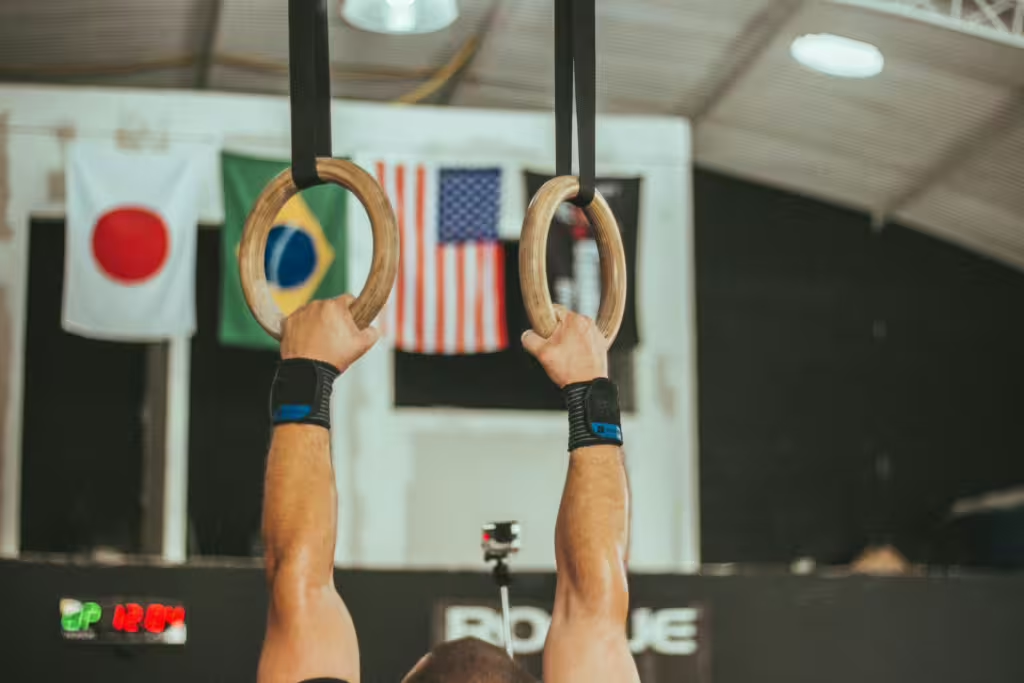
Simone Biles: Turning Fear Into Power
Simone Biles is a famous, gold medal-winning Olympian who is widely regarded as the greatest gymnast of all time. She has an incredible 32 Olympic and World Championship medals to her name. But Simone wasn’t always a world champion. As a matter of fact, her journey to the top was anything but smooth. As a child, Simone faced personal challenges, including being placed in foster care before being adopted by her grandparents. Despite these hurdles, the gymnastic dynamo eventually discovered the sport and fell in love with it.
Like so many famous athletes, Simone struggled with consistency and self-doubt early on. Competing against older and more experienced gymnasts, she often questioned whether she belonged on the world stage. Eventually, she learned to focus on her strengths and work relentlessly to improve her weaknesses. This eventually led her to victory in dozens of Olympic and gymnastic trials!
Michael Jordan: Overcoming Rejection
We all know about basketball legend Michael Jordan, but not everyone knows that his is a classic example of turning rejection into motivation. As a sophomore in high school, Michael was cut from the varsity basketball team. Though he was devastated but used this setback, he used it to fuel his hard work and determination. Eventually, he proved his doubters wrong…and then some! Despite facing numerous challenges and criticism throughout his career, Michael has remained strong and come out as one of the foremost legends of the NBA.
Naomi Osaka: Standing Tall Under Pressure
Naomi Osaka is a tennis player who burst onto the tennis scene with her powerful serve and calm demeanor. This won her a Grand Slam title at the 2018 US Open, but it wasn’t all success. Behind the scenes, Naomi often struggled with self-doubt and the immense pressure of being in the spotlight. When she was younger, Naomi idolized stars like Serena Williams. She worried that she couldn’t ever compete at their level. Still, over time and through rigorous training and mental preparation, she developed the confidence to challenge the sport’s best players. When she faced off against Serena Williams in 2018, in front of a roaring crowd, she ultimately secured a historic victory.
Usain Bolt: Staying Confident Under Pressure
Usain Bolt is known as the fastest man in history. This is not unwarranted, because his unparalleled speed and signature confidence is second-to-none. But even the seemingly super powered Bolt faced moments of doubt early in his career. As a young athlete, he struggled with injuries and criticism from coaches who questioned his commitment and ability to compete at the highest level.
Rather than let these challenges derail his career, Bolt used them as motivation to work even harder. He hardened his body, refined his technique and turned that hard work and dedication into a singular style. By embracing his unique style and celebrating his successes, Bolt kept the pressure from overwhelming him, eventually breaking the world record for 100m and 200m sprints at the 2008 Beijing Olympics.
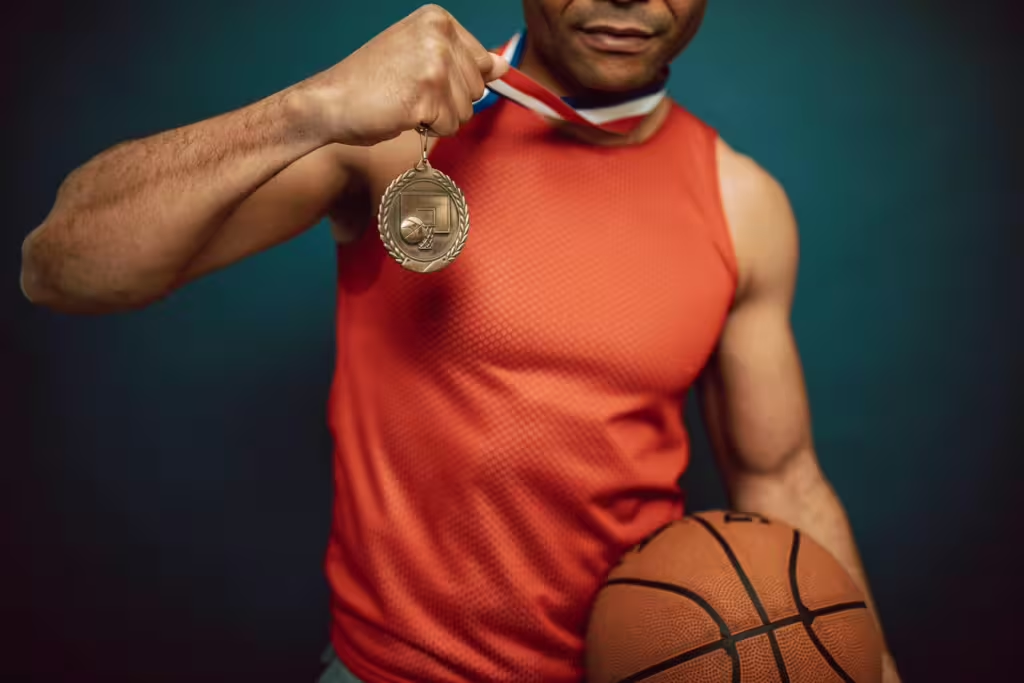
Tips for Building Self-Belief in Everyday Life
Sports aren’t the only place where self-belief matters. Kids who find success and confidence in youth sports will likely learn to carry that confidence into everything they do, from school to relationships, to their future careers. They also might develop the attributes below:
- Try New Things Trying new activities, even if they are nervous, helps kids to grow. Each new skill that they master or even simply learn, boosts their confidence.
- Be Kind to Yourself Parents should learn to treat themselves like they would want a friend to teach them. If your kid wouldn’t say something mean to their friends, they should not say those things to themselves.
- Celebrate Your Wins Whether it’s finishing a homework assignment or scoring a goal, remind your kids to take time to recognize their achievements; and make sure you as parents do that as well!
- Keep a Positive Attitude Kids need to understand that challenges are part of life. Teach your kids how to believe in their own ability to handle them, and remember that every setback is a new chance for them to learn something new.
- Find Role Models Teach your kids to look up to people who inspire them, whether they’re athletes, teachers, or friends. Kids who learn from their positive examples and let their stories motivate them, will often exhibit that same success down the line.
Cultured Athlete Says…
Kids who believe in themselves understand that a sports career is a journey, not a destination. This isn’t always apparent right away. It takes time to learn that even champions have days when they doubt themselves, but they kept going. Remind your kids that they have that same strength inside themselves. With practice, patience, and the right mindset, they too can develop unshakable confidence and become their own hero. If they stick to the advice here, pretty soon they’ll be one of the pros, inspiring others with their confidence, just like their favorite champions do!
Discover more from CulturedAthlete
Subscribe to get the latest posts sent to your email.

